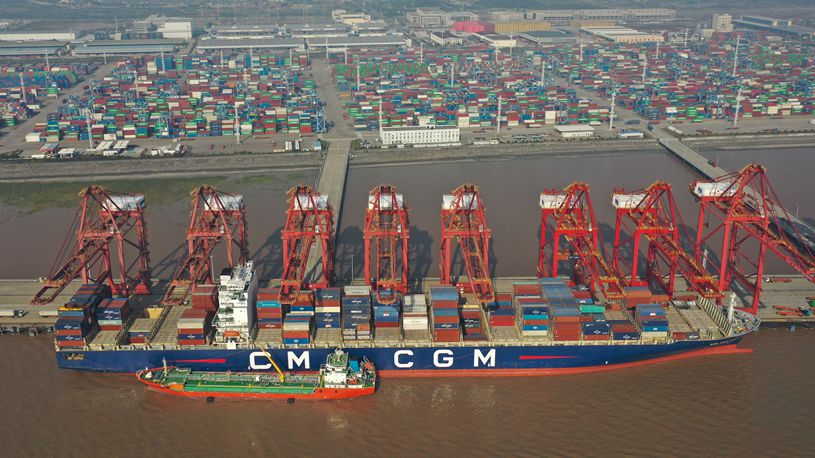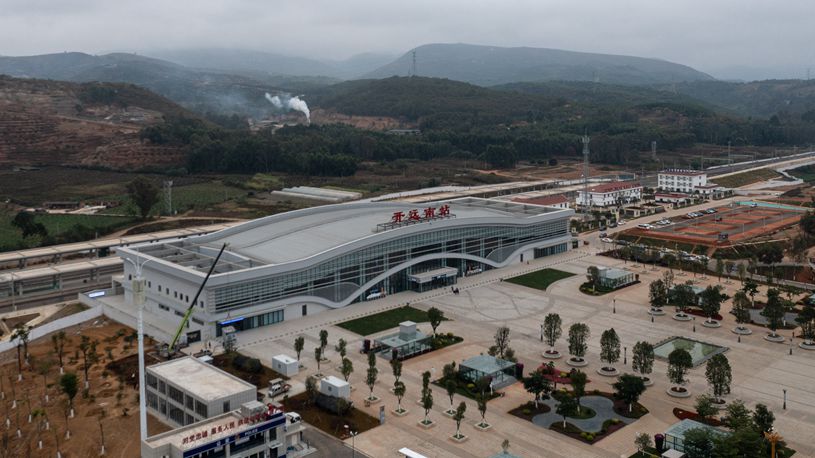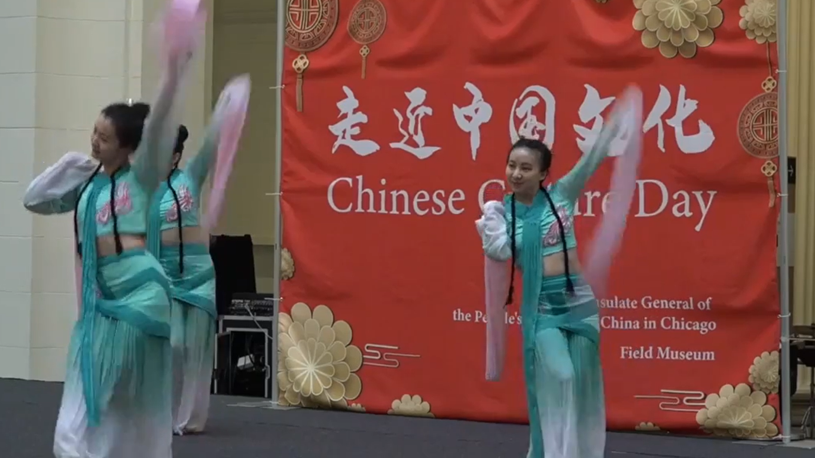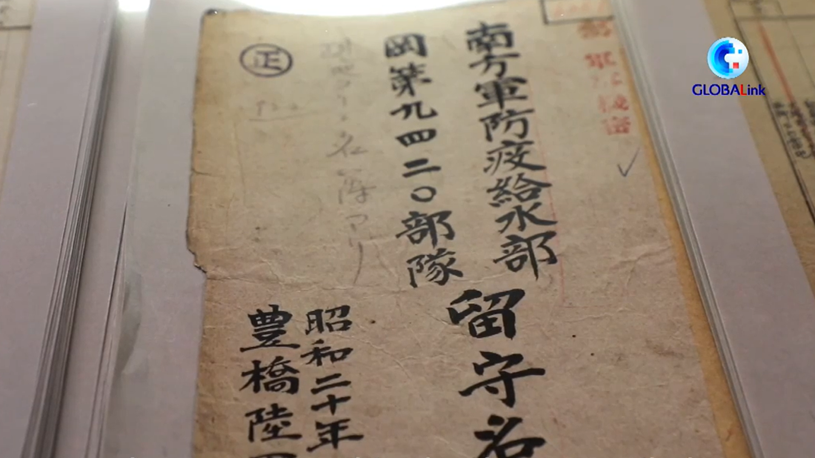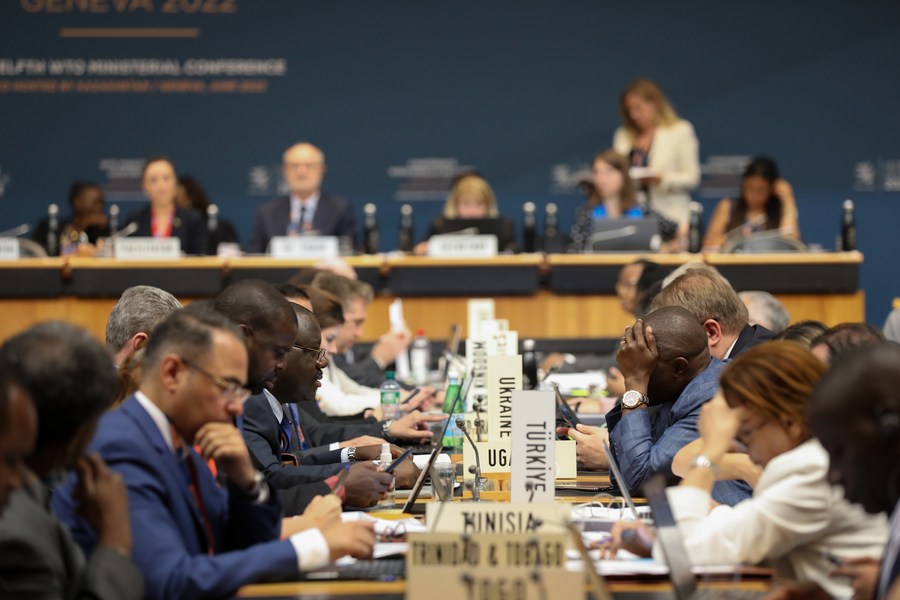
Photo taken on June 15, 2022 shows a view of the World Trade Organization's (WTO) 12th Ministerial Conference (MC12) in Geneva, Switzerland. (WTO/Handout via Xinhua)
China, the European Union (EU), Canada, Türkiye and many other WTO members strongly urged the United States to fulfill its obligations as a WTO member and avoid unilateralism and protectionism.
GENEVA, Dec. 15 (Xinhua) -- Members of the World Trade Organization (WTO) criticized U.S. trade policies on Wednesday here at the ongoing 15th Trade Policy Review of the United States.
China, the European Union (EU), Canada, Türkiye and many other WTO members strongly urged the United States to fulfill its obligations as a WTO member and avoid unilateralism and protectionism.
Despite its rhetoric touting multilateralism, the United States has taken measures to counter the fundamental principles of the multilateral trading system, China's Ambassador to the WTO Li Chenggang said.
While chanting for a level playing field, the United States has provided many discriminatory subsidies to its industries to gain predominance, he said.
The United States puts "America First" and abides by its domestic laws over international rules, disregarding WTO regulations and the concerns of other members. Clearly, the United States is a "destroyer to the multilateral trading system," Li said.
The United States has put its own interests above the global common interests, bullying other members by leveraging its economic and technological power. The United States is a "unilateralist and bullying hegemonist," Li said.
The United States applies different standards to others and itself. While demanding other members enhance discipline and transparency, the United States itself is implementing large-scale exclusive and discriminatory industrial policies, Li said.
The Chinese ambassador said that the United States is hanging onto a Cold War mentality, abusing the concept of "national security" and disrupting the global supply chain by decoupling and disconnecting.
There are strong inward-looking tendencies in U.S. trade policy, which favor domestic sectoral interests, said Joao Aguiar Machado, EU's ambassador to the WTO.
The EU and other WTO members are very concerned about the recent adoption of the Inflation Reduction Act (IRA). Machado said that many of the generous subsidies in the act tilt the playing field in favor of U.S. producers in crucial technology sectors, including, but not limited to, the automotive sector.
Canada shares concerns about U.S. trade policies that affect the functioning of the WTO and even the rules-based trading system, said Nadia Theodore, Canadian ambassador to the WTO.
She pointed out that the U.S. legislation and policies, such as "Buy America" and elements of the IRA that favor domestic content and production over those of trading partners, present both competitiveness challenges and challenges to the multilateral trade system.
Clare Kelly, New Zealand's ambassador to the WTO, also criticized the U.S. act, arguing that it had a detrimental effect on the U.S. trading partners.
The United States has adopted double standards and a policy of selective compliance with the WTO rules, said Dmitry Lyakishev, Russian ambassador to the WTO.
Earlier this week, Washington announced its refusal to implement the WTO's decisions in the "steel and aluminum" disputes, which established numerous infringements of fundamental WTO obligations, he said.
The U.S. trade policies have continuously spiraled into a vicious cycle of protectionism with blatant disregard for the WTO rules, Lyakishev added.
The United States imposed additional tariffs on imported aluminum and steel products, which clearly violates WTO rules, said Alparslan Acarsoy, Turkish ambassador to the WTO. He called on the United States to cancel the additional tax measures to avoid further damage to the multilateral trading system.
Türkiye believes that the United States has systematically and structurally damaged members' confidence in the multilateral trading system, he added. ■

